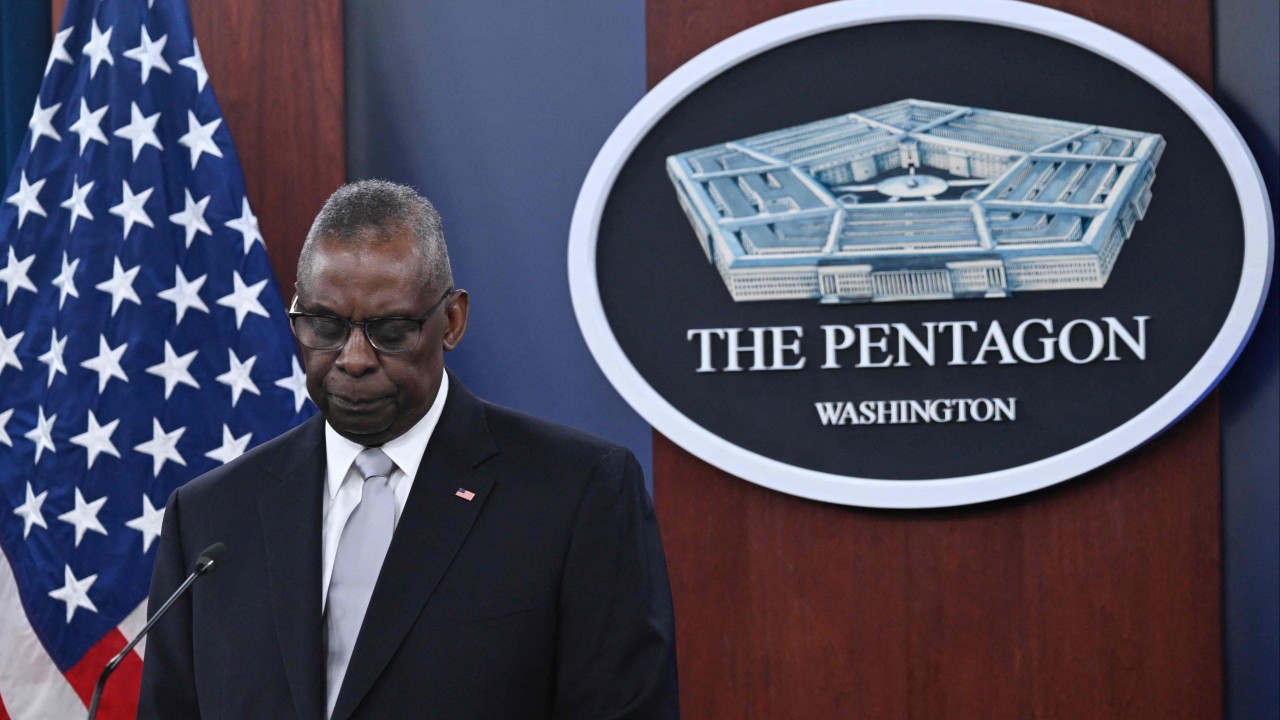
US Defence Secretary Lloyd Austin was taken to hospital again on Sunday, a Pentagon spokesman said, this time “for symptoms suggesting an emergent bladder issue”, weeks after previous stays he controversially kept secret.
This time, the public was alerted around two hours after the 70-year-old was sent to the hospital on Sunday afternoon, with Defence Department press secretary Pat Ryder saying in a statement that military, White House and congressional officials had all been notified.
Pentagon chief apologises for concealing cancer hospitalisation
Pentagon chief apologises for concealing cancer hospitalisation
Austin “was transported by his security detail to Walter Reed National Military Medical Centre,” Ryder said.
“The Deputy Secretary of Defence and the Chairman of the Joint Chiefs of Staff have been notified. Additionally, White House and Congressional notifications have occurred.”
It was not immediately clear whether Austin had been admitted yet or how long he would stay, though Ryder noted that the defence chief brought along classified communications systems and would be retaining “the functions and duties of his office.”
After coming under heavy political fire for keeping the previous hospital stays secret, Austin apologised earlier this month.
“I should have told the president about my cancer diagnosis,” he told journalists on February 1.
US defence chief Lloyd Austin vows ‘all necessary actions’ after US troop deaths
US defence chief Lloyd Austin vows ‘all necessary actions’ after US troop deaths
At the time, he said he was still in recovery, suffering from leg pain and using a golf cart for transport inside the Pentagon.
Various Republican lawmakers previously called for Austin to be sacked, but Biden, while lamenting the Pentagon chief’s lapse in judgment, has said he remains confident in his defence secretary.
Austin is an intensely private person who eschews the spotlight, which he said played into his decision to keep the cancer diagnosis secret.
But he admitted that “taking this kind of job means losing some of the privacy that most of us expect. The American people have a right to know if their leaders are facing health challenges that might affect their ability to perform their duties, even temporarily”.

